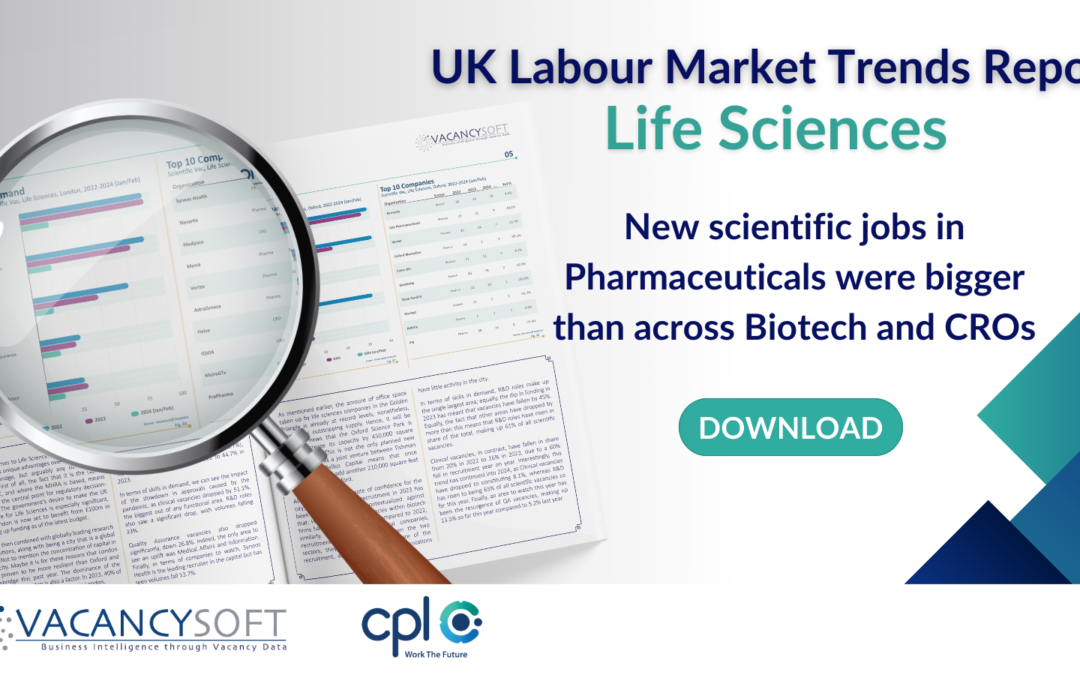
According to the latest Life Sciences Labour Market Trends report by CPL and market data analysts Vacancysoft, key recruitment trends show that in 2022, there were over 4,100 new scientific vacancies published in the ‘Golden Triangle’ (Cambridge, London and Oxford). This translates to a slight decrease from 2021, when there were over 4,500 jobs, resulting in a year-on-year fall of 9.1%.
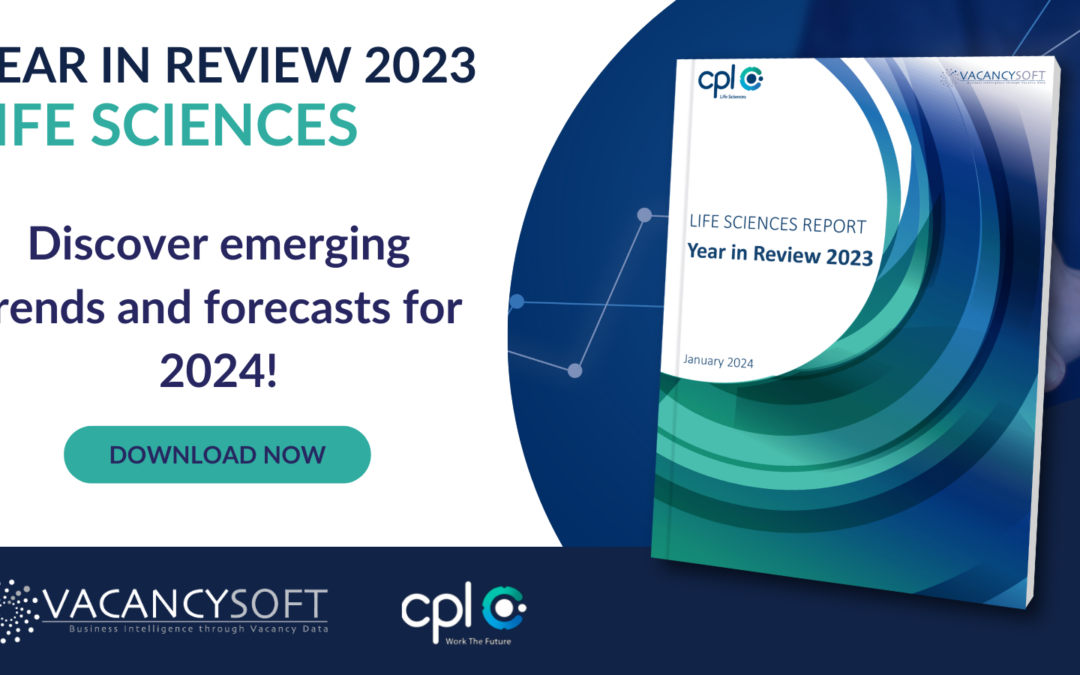
Perhaps inevitably, the post-pandemic period has resulted in a hangover for the sector, as the combination of quantitative tightening leading to a slowdown in funding for emerging biotechnology firms, combined with the delays associated with getting new trials approved over the period, has meant that in recruitment terms, 2023 really was a slow year. Indeed, vacancies in 2023 were 42.6% lower than in 2022.
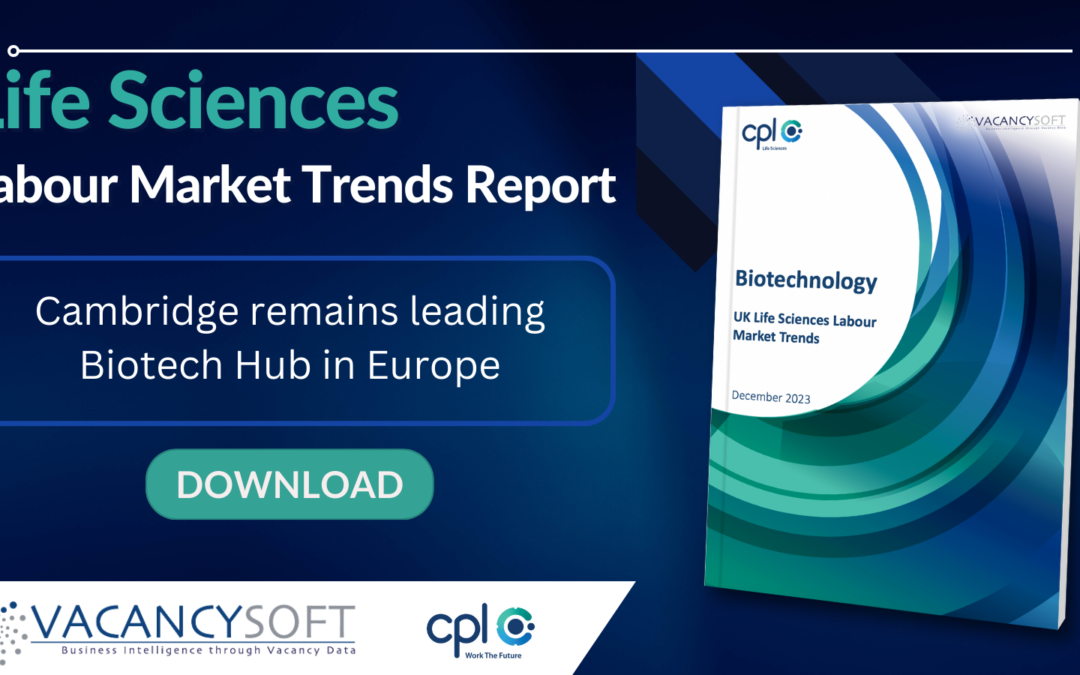
The biotech sector has been on a downward trend this year, with vacancies down 34% in 2023. With that, the first quarter saw the highest concentration of job postings, tallying 351 vacancies. Indeed, January and March were the top two months in 2023, with 131 and 123 vacancies respectively. This is according to the latest Life Sciences Labour Market Trends report by CPL and market data analysts Vacancysoft.
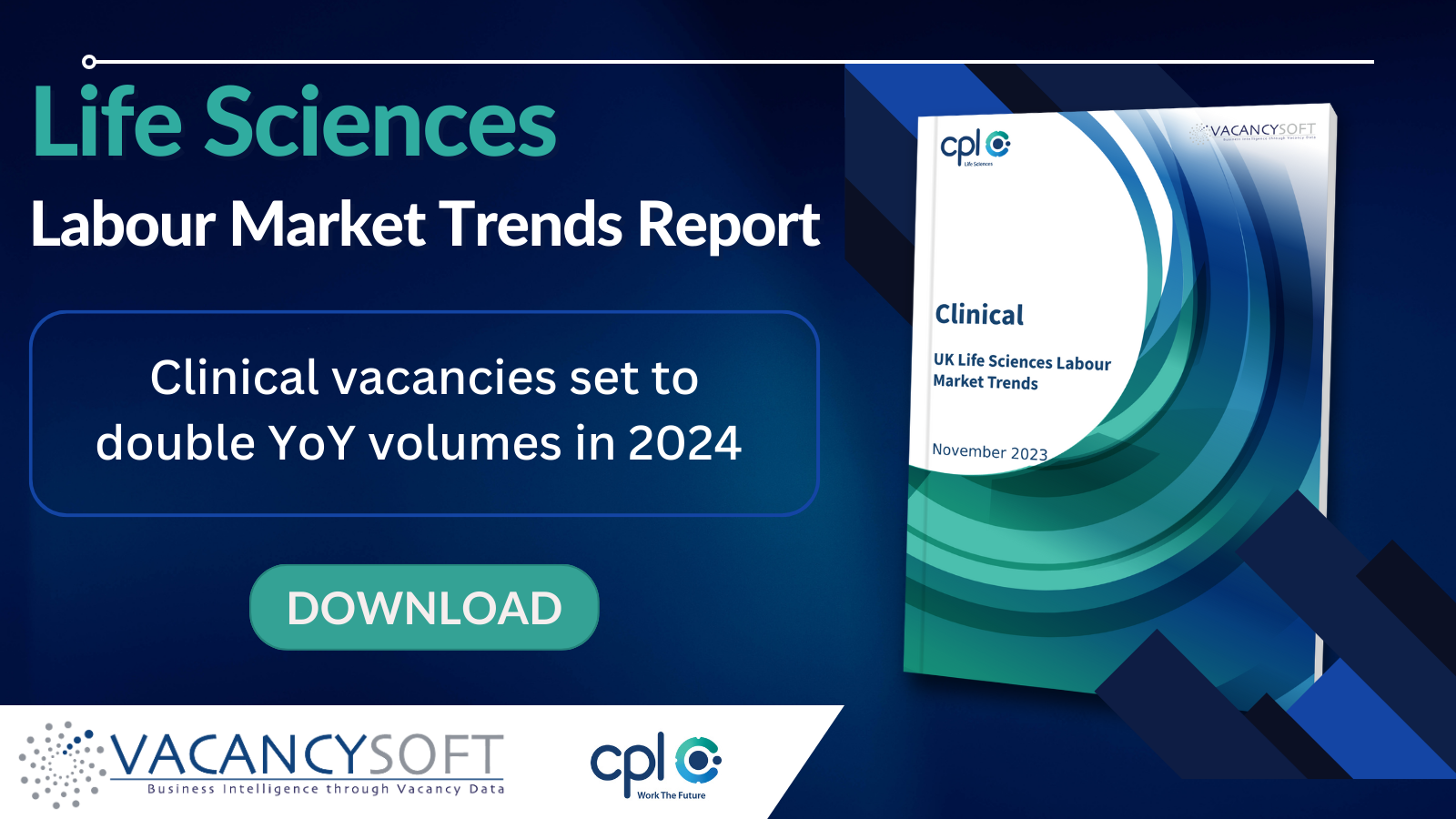
While 2023 has seen significantly lower levels of recruitment for clinical-specific functions, the forecast for 2024 is bullish, with the immediate projection being for two times more clinical vacancies in 2024 than in 2023.
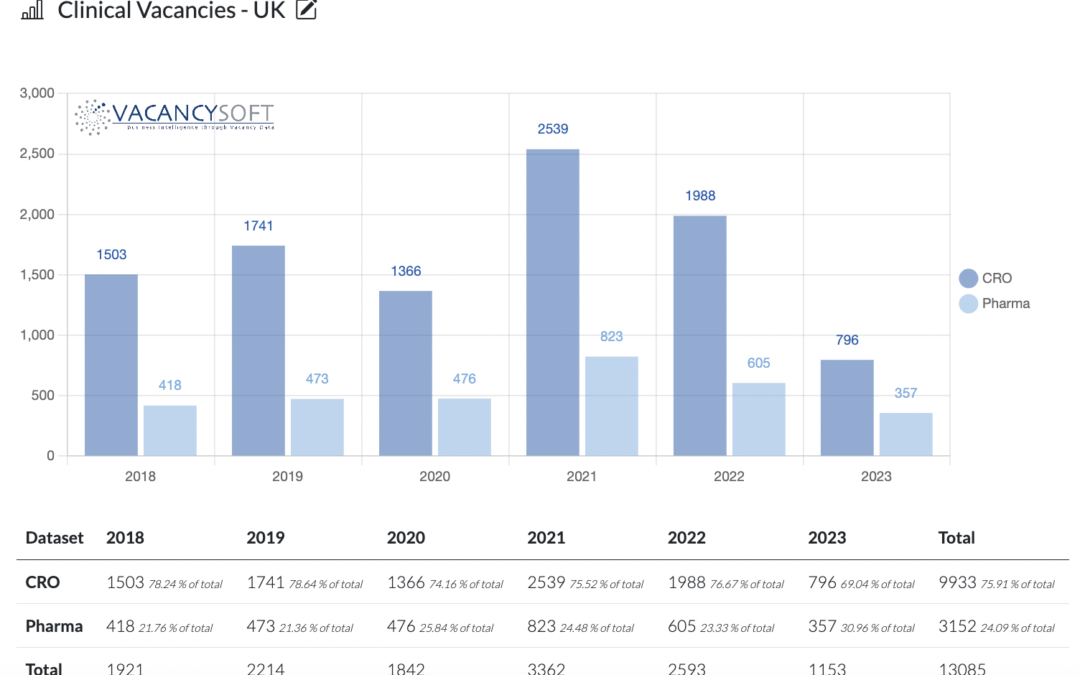
Whisper it quietly, but some of those benefits of leaving the EU are actually starting to materialize. For those in Life Sciences, new regulations taking effect have meant that the MHRA can now fast-track applications, where as a result, approvals can happen in certain instances, within 14 days.







